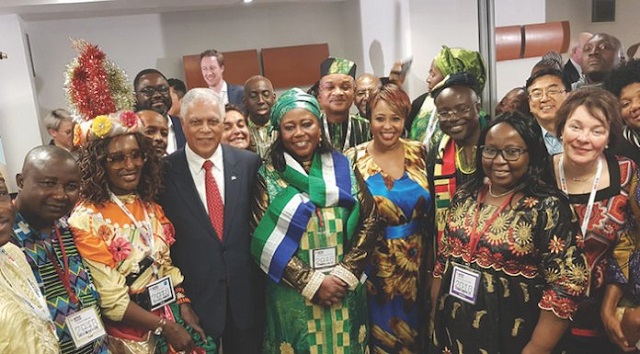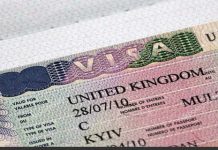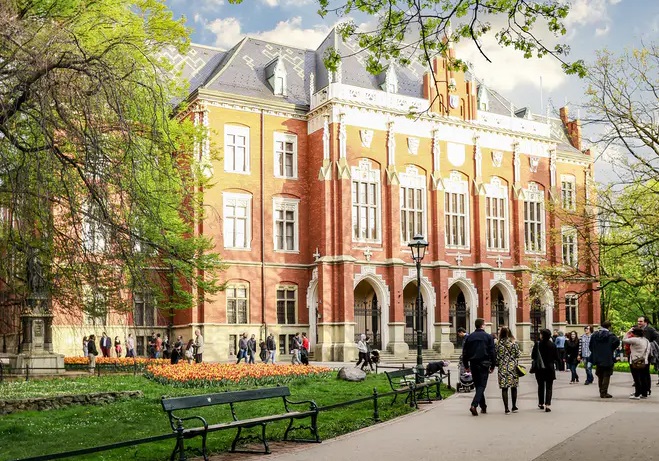West Africa Tourism no doubt is gradually slipping into comatose. But the recently concluded 2018 World Travel Market in Excel London, United Kingdom ended on a good note with stakeholders addressing the issue of West Africa becoming an integrated travel destination, with its slogan “Boundaries Unlocked”
An integrated West African travels provide unlocked boundaries and great opportunities of rapid tourism growth worldwide. However, West Africa still appears to lag behind and even below the average growth rate of tourism development on the African continent.
According to UNWTO data, international tourist arrivals grew six percent in the first six months of 2018, compared to the same period last year, reflecting a continuation of the strong results of 2017.
Europe, Asia and the Pacific led growth in the January-June 2018 period, with arrivals increasing to seven percent in these regions. The Middle East and Africa also recorded sound results with five percent and four percent growth, respectively, while the Americas saw a three percent increase during the same six-month period.
Notwithstanding, these robust tourism numbers from most of the regions, Africa tourism only grew by a mere four percent. Of these, the West Africa sub-region registered the lowest numbers in term of travel and tourism.
When talking about West Africa, it is referred to very large sub-region of the African Continent with an estimated population today of over 385 million, spanning 15 countries, from small Cabo Verde in the far west, with just over half a million inhabitants, to giant Nigeria in the south of the sub-region with almost 200 million.
West Africa is a diverse patchwork of countries, ranging from massive deserts in the north to lush tropical forests in the south, and just about every terrain and climate imaginable in between. The flora and fauna of this vast sub-region of the African Continent create the backdrop and context of the myriads of its colourful inhabitants.
Whether inhabited by desert nomads in the northeast or peoples in the forest of the southern part of the sub-region, or the swelling number of millions of city dwellers, West Africans are diverse, rich in cultural traditions and lively peoples by nature. Indeed, outsiders are generally astounded by the diversity of peoples and cultures, and the open friendliness of the West Africans they come in contact with. These are indeed the strong ingredients and rich stuff that bodes for the enormous potential for tourism development in West Africa.
Yet, only a minuscule number of the hundreds of millions of West Africans know much about other countries in the sub-region and still far fewer numbers have travelled from one country to another. As tourists in the sub-region, the numbers become infinitesimal.
Against the aforementioned of lack of continental identity, Minister of Tourism and Transport and Minister of Maritime Economy, Cabo Verde, Dr. Jose da Silva Gonçalves said collaborative effort would be needed to be able to achieve much to be able to catch up with the developed world in tourism.
Gonçalves made this known at the West African Tourism Minister’s Stakeholders Forum held on Monday November 5th during 2018 World Travel Market in Excel London. According to him, he said he was often struck by the awe on many fellow West African faces when they ask him where he is from as only the elites seem to have knowledge of the small archipelago nation, some 500 km off the West Coast in the Mid Atlantic.
He added: “I sadly admit that we West Africans do not know each other well and have much to learn about how diverse yet how similar we are to one another in spirit and disposition. This likeness is nowhere more evident than in our fantastic Music! We need but to turn on a West African beat to see people gyrate and vibrate. However, I am optimistic that travel and Tourism will bring us closer together. Of course, once we overcome some logistics hurdles that seem to impede our getting around visiting each other.”
Speaking further, he pointed out: “Although, no visas are required today for West African citizens to travel from one country to another, major travel impediments remain. Air transport in particular, and transport infrastructure generally, remain, to date, the biggest challenges for travel and tourism development in Africa in general and for West Africa, in particular. Fortunately, major investments are underway to build ports and airports and airlines are being launched or re-launched, in some cases.
The solemn launch by African Heads of States of the Single Africa Air Transport Market in Addis Ababa in January of this year gave a strong push to the materialization of the Yamoussoukro Decision that had been lingering for decades. To date, some 26 countries have signed on, but an equal number have yet to come onboard, and we hope would join soonest”.
In her address, Chief Executive Officer, West Africa Tourism Organisation (WATO), Ms. Ola Wright said efforts at building more connected West Africa using West Africa integrated Travel (WAIT) project is already reaching new heights and breaking new grounds in each area of challenge that confronts tourism success in the region.
“The vision of WAIT, which was put in motion about a year ago is on course as we continue to gather steam in unveiling fascinating destinations that have been off the beaten tracks for many years, our focus has not shifted,” Wright stated.
In deploying the strength of WATO, the WAIT project Wright said took off with launch of ARIYA 2017 during the WTM, Ghana took front seat in championing the mission of WAIT by signing Memorandum of Understanding (MoU) with WATO and soon after hosted the first WAIT Forum which was held in Accra in March 2018 and had five West African Countries participating.
While WATO as an organization is doing so much to achieve its set objectives by making West African a destination hub, she noted that many African countries have gone further than pay lip service to the call for cooperation among one another so as to boost the commerce of tourism in the region.
She concluded by saying that as the organization move forward, its target is in sight and will not relent in its efforts to realise a West African Visa. “With one country after the other opening up its borders to its neighbours and international travellers, West Africa will become a huge, diverse, profitable, but single destination for a large number of tourists whose varied interests are met in every way. And with WAIT, the wait will soon be over. The borders are unlocked,” she concluded
In applauding this laudable move that would put West African nations on the global map of tourism if realized, Chief Executive Officer, Ghana Tourism Authority, Akwasi Agyeman, said for tourism business in West Africa to be viable, tourism operators have to see it as a business not only that, both private sector and operators must be integrated so that the revenue, which is part of GBP can be well accounted for.
“Beyond the aforementioned, we need to invest more in marketing and promote relations between local entrepreneurs and private sectors. Above all, government should start seeing tourism as a vehicle to drive the economy and also see both business and tourism going hand-in-hand.
President, Federation of Tourism Associations of Nigeria, Rabo Saleh Kareem, in his words said in talking tourism, power of technology must be emphasised.
“The power of technology helps to move tourism forward cannot be over-emphasised as it plays a crucial role in promoting tourism that is sustainable. This will also help to sell the region to the world,” Kareem noted.
Though connectivity is still an issue, Kareem believed with the right infrastructure the problem can be solved.
The question is that can the idea of West Africa as a single destination work considering differences in language, currency and who pays for the technology.
Well, stakeholders at the forum believed harnessing West African tourism potential with the slogan ‘One destination’ is achievable if all stakeholders can be committed to the cause and government should demonstrate political will by seeing the sector as a vehicle to drive the economy and generate more income for their various countries.












